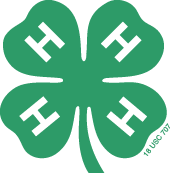What Is 4-H?
go.ncsu.edu/readext?811715
en Español / em Português
El inglés es el idioma de control de esta página. En la medida en que haya algún conflicto entre la traducción al inglés y la traducción, el inglés prevalece.
Al hacer clic en el enlace de traducción se activa un servicio de traducción gratuito para convertir la página al español. Al igual que con cualquier traducción por Internet, la conversión no es sensible al contexto y puede que no traduzca el texto en su significado original. NC State Extension no garantiza la exactitud del texto traducido. Por favor, tenga en cuenta que algunas aplicaciones y/o servicios pueden no funcionar como se espera cuando se traducen.
Português
Inglês é o idioma de controle desta página. Na medida que haja algum conflito entre o texto original em Inglês e a tradução, o Inglês prevalece.
Ao clicar no link de tradução, um serviço gratuito de tradução será ativado para converter a página para o Português. Como em qualquer tradução pela internet, a conversão não é sensivel ao contexto e pode não ocorrer a tradução para o significado orginal. O serviço de Extensão da Carolina do Norte (NC State Extension) não garante a exatidão do texto traduzido. Por favor, observe que algumas funções ou serviços podem não funcionar como esperado após a tradução.
English
English is the controlling language of this page. To the extent there is any conflict between the English text and the translation, English controls.
Clicking on the translation link activates a free translation service to convert the page to Spanish. As with any Internet translation, the conversion is not context-sensitive and may not translate the text to its original meaning. NC State Extension does not guarantee the accuracy of the translated text. Please note that some applications and/or services may not function as expected when translated.
Collapse ▲Have you heard the old saying, “if you only do what you have always done, you will always get, what you always got?” I try to apply this saying when planning for how 4-H can continue to meet the needs of youth and families over time. When 4-H was established over 100 years ago, our view of the world was very different. We were an agrarian society and 4-H clubs were established to help us learn to take care of the home and preserve food in ways that would benefit the family! Those same skills are necessary today, however, we have progressed and identified even larger endeavors for 4-H learning. In today’s fast-paced world, we expect youth to learn new information and then be able to apply that learning in future situations. In order to accomplish this task, youth must be introduced to critical thinking skills, decision making, and communication skills. 4-H is a great place for youth to learn these skills!
As we design activities that challenge youth, we see an emergence of cooperation, exploration, open ended and focused observations. 4-H tries to build upon a child’s natural curiosity and love of exploration! Volunteers that step back and allow youth to “lead” can see the progression in confidence expressed by 4-H members. Our “hands-on” approach to learning has not changed over the 100 years! That model of learning has served us well and we continue to apply that model as we learn new subject matter.
As an organization, 4-H strives to:
- lead educational programs,
- focus programming upon current and emerging needs, which are results-driven,
- strengthen life skills,
- encourage volunteerism and community service, and
- grow youth/adult partnerships.
When we do these things, we will continue to grow. We may not offer the same programs year after year; instead, we may strategically plan to offer programs that meet the emerging needs that are identified through our environmental scan. As a result, 4-H will be flexible and adaptable in a variety of settings. In order to be competitive in the 21st century, our program must be creative and innovative. We must provide youth the opportunities to use critical thinking skills so they get practice in analyzing and synthesizing information in order to solve problems and answer questions. In addition, our 4-H programs have to help youth articulate their thoughts and ideas clearly and effectively. Utilizing our educational presentation contest is one way to begin this process.
Why do we care so much about how young people fare today? Because we know youth will compete for tomorrow’s jobs not only with other American youth, but with the most brilliant minds around the globe. North Carolina must educate and graduate people with the right knowledge, skills, ideas, and self-motivation to compete globally for job security. I care, because I know our future depends on the youth who are graduating today, and I want to make sure I have done everything I can to assist them in becoming competent and contributing members of our communities.
If you would like an opportunity to assist 4-H with the planning and implementation of programming, give us a call at 336-593-8179. 4-H is open to all youth ages 5-18 without regard to race, color, religion, sex, national origin, or disability. Stokes County 4-H is funded by the United Fund of Stokes County. Please visit us on Facebook by searching Stokes County 4-H.






